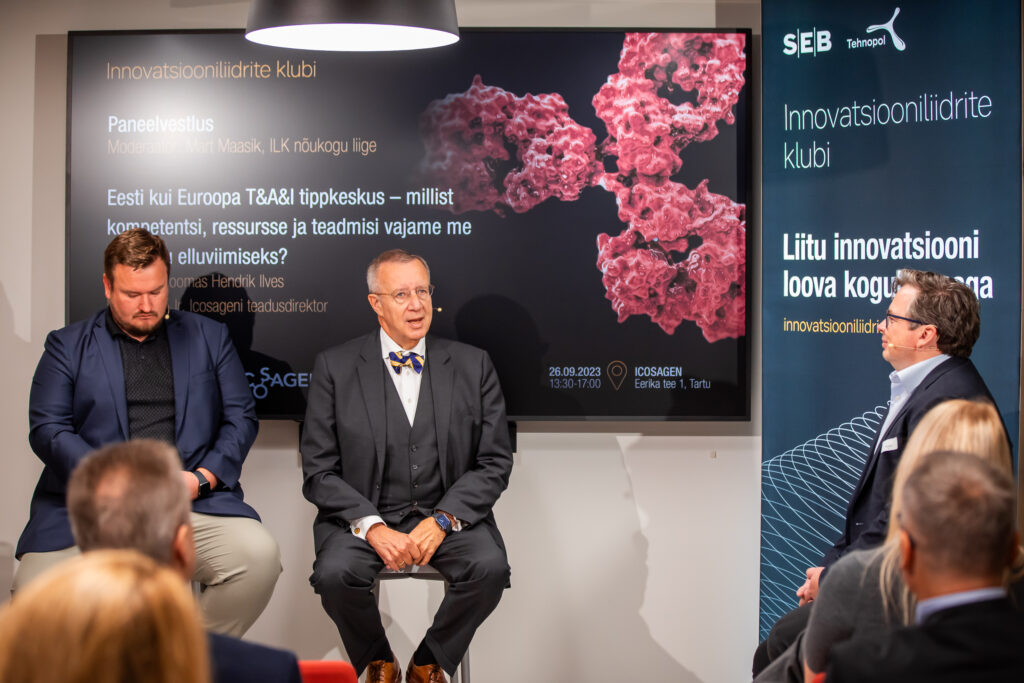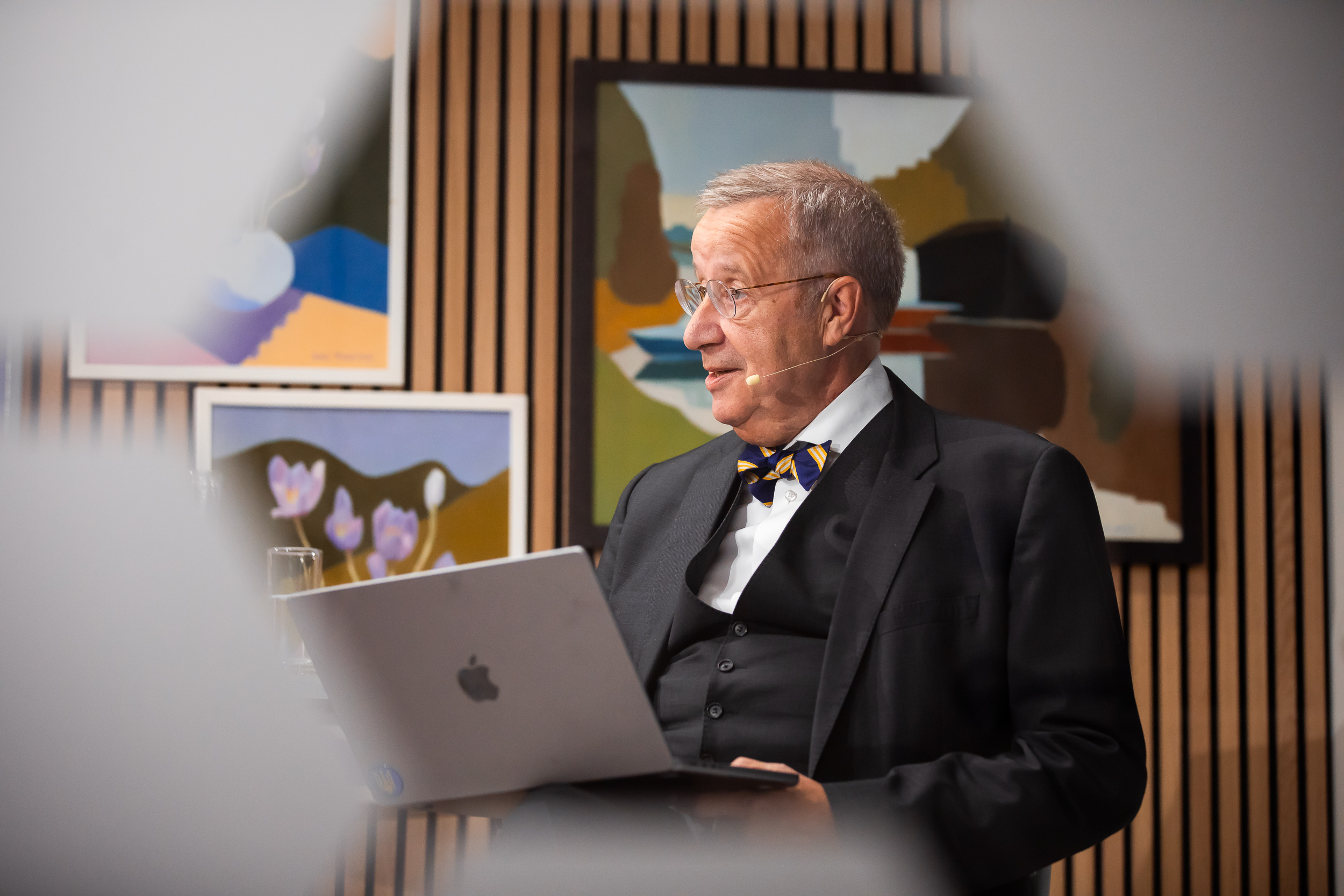Inspiring practices in R&D&I growth support and the implementation of innovative technologies – Icosagen’s success story
The Innovation Leaders Club launched its fourth season this autumn, and to mark the occasion, members gathered for the opening event on 26th September at Icosagen’s factory in Tartu. The guests eagerly listened to presentations by the speakers, and at the end of the day, participants had the opportunity to take part in a rare tour introducing Icosagen’s laboratory spaces.
Innovation as “finding something unexpected while looking for something else”
The event was opened by President Toomas Hendrik Ilves, who shared his thoughts on innovation as a concept and offered several intriguing historical examples to the audience. To fit in with the surroundings, he brought the example from Alexander Fleming’s journey of discovering penicillin, where his driving force was not creating a new drug but trying to understand why his experiments in Petri dishes kept failing. He also briefly described the history of the well-known Apple brand and their creation processes to illustrate that innovation does not necessarily mean creating something entirely new, rather it often is the recombination of existing elements into something novel.
In a more critical tone, Ilves described innovation funding models. He pointed out the major differences between European and American investment models – in Europe, approximately 80% of funding comes from banks and 20% comes from private equity, while in the United States the system operates in the opposite manner. He emphasized that such vast differences in funding opportunities are often the reason why entrepreneurs leave their home countries.
The president concluded his presentation by sharing his vision of a possible future success story for Estonia, which could be the broader use of genetic data in biotechnology and medicine. He emphasized that there are still many obstacles to overcome in this field, but the potential is significant enough to shape into something revolutionary.
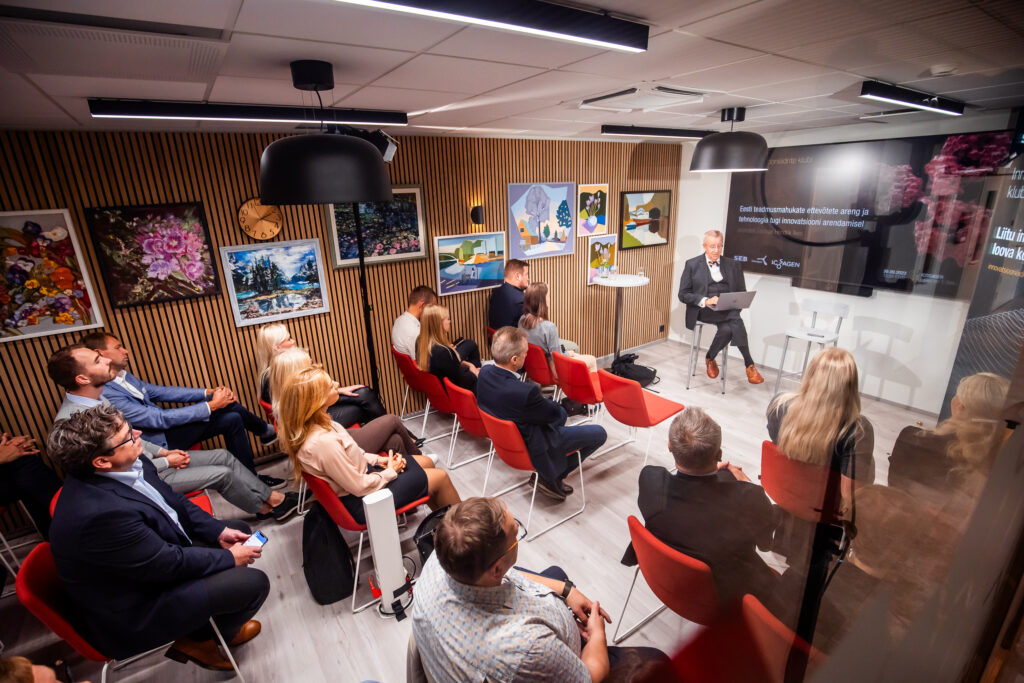
Novel approaches are the foundation for research and development and innovation
One of the goals of the event was to introduce members to one of the most successful biotechnology companies in Europe – Icosagen – for which the company’s Scientific Director, Mart Ustav Jr, gave an extensive overview. He introduced Icosagen’s long and noble history in the field of biotechnology, as they have operated since 1999, and provided insights into their daily laboratory activities.
Icosagen focuses on researching and developing therapeutic proteins, mainly antibodies, for potential diagnostic and drug form development. Ustav Jr. gave a detailed overview of the world of antibodies and biological drugs, describing their research and production processes. Scientists at Icosagen work hand-in-hand with their clients on biotechnology-related research. The company became known to the wider Estonian public with its “Bioblock” product, which quickly gained popularity.
The company has a successful research and development strategy trusted by hundreds of clients worldwide. “In 2022, we collaborated with nearly 100 different biotechnology companies, including major pharmaceutical companies, and executed over 500 different projects,” noted Ustav Jr. Icosagen’s ambition is to become a pharmaceutical company, with significant steps in that direction already taken, as they will soon open their biological drug factory, enabling additional capability to produce therapeutic antibodies and other proteins via their own processes. Their vision is to have their developed drug molecules in clinics by 2025. “Our goal is to establish a truly Estonian pharmaceutical company.”
Ustav Jr. highlighted that in addition to business processes related to biotechnology, Icosagen is also a firm supporter of science, functioning as a private research and development institution. “A significant part of our research and development team is involved in supervising approximately 5-6 master’s theses each year, and we have several doctoral students,” he specified. Additionally, Ustav Jr. referred to the Programme for Applied Research (RUP) by EAS and Kredex as an excellent support measure for research and development activities in Estonia, which researchers and knowledge-intensive companies should consider participating in.
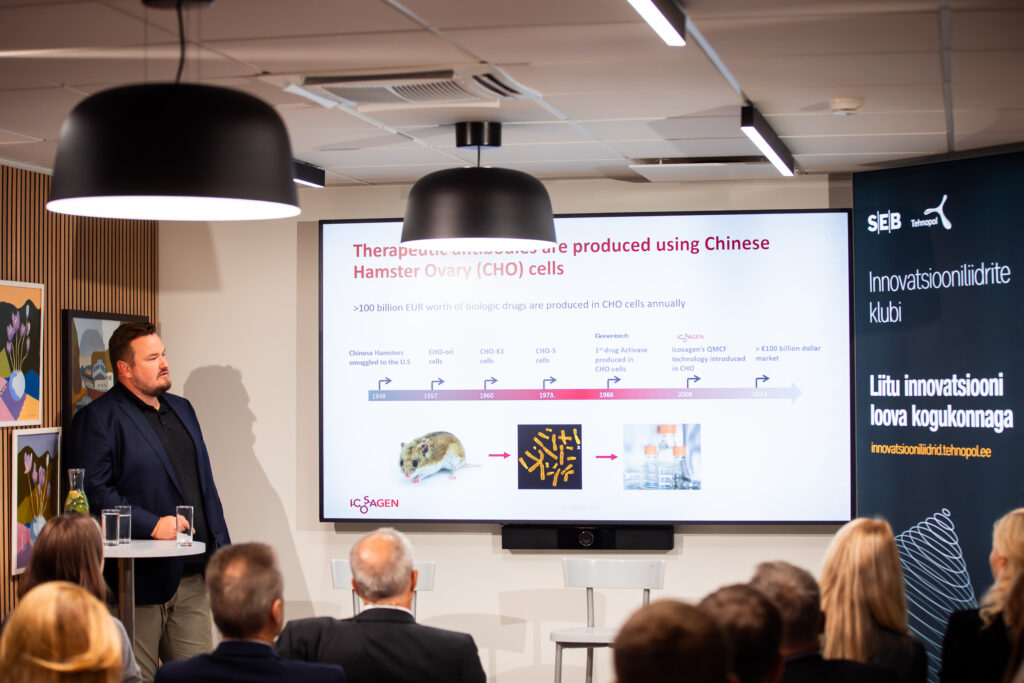
Having the right mindset is crucial for supporting innovation
To finish the day, the speakers gathered for a discussion moderated by Mart Maasik, one of the board members of the Innovation Leaders Club.
The discussion primarily focused on cultural and mindset issues from the perspective of innovation creation. President Ilves once again brought up a good example of Skype’s creation, which was a surprising success for small Estonia and demonstrated that such significant success stories are indeed possible. Often people see greener pastures elsewhere, such as in larger countries, but Estonia’s success stories serve as examples that everything is achievable. Ilves noted that these should be culturally promoted more widely to encourage talents to return home and create innovative solutions here.
Participants also discussed the fact that there still is not enough science in Estonia. Ustav Jr. pointed out that this can be measured, for example, by the number of patents – Estonia has approximately ten times fewer technological patents than the Nordic countries. A part of the problem is the departure of young researchers and scientists from Estonia, who do not want to return home due to unfavorable conditions that hinder innovation. Ustav Jr. stated that, for researchers to return, there must be a “place to come back to,” referring to the readiness of the academic sphere or the private sector to support knowledge-intensive initiatives.
The discussion also touched upon an interesting perspective regarding the possibility to share talents between companies. However, participants found that this is more of a challenge than a problem-solving opportunity, as almost every company is facing a shortage of skilled workers as it is, making talent sharing too complex for all parties involved.
To summarize, it was concluded that there is a need to create a more favorable environment for talented individuals to return, and entrepreneurs should be more encouraged to believe that great success stories in science innovation, like Icosagen, are possible in the Estonian context as well.
Check out the photo gallery here!
